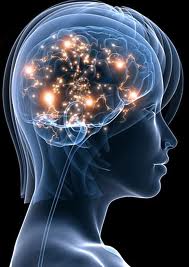Alcohol-Energy Drinks' Allure? It's the Dopamine
 Wednesday, November 10, 2010 at 2:57PM
Wednesday, November 10, 2010 at 2:57PM  There's an explanation for the addictive quality of the spate of new caffeine-laced alcoholic beverages like Associated Brewing's Axis, United Brands's Max and Phusion Projects's Four Loko (the drink of record when nine Central Washington University students were hospitalized--some with lethal alcohol blood levels--after a party last month.) It turns out it all comes down to dopamine, the wily little neurotransmitter responsible for feelings of reward and motivation, and which is intimately tied up in cocaine and heroin addiction.
There's an explanation for the addictive quality of the spate of new caffeine-laced alcoholic beverages like Associated Brewing's Axis, United Brands's Max and Phusion Projects's Four Loko (the drink of record when nine Central Washington University students were hospitalized--some with lethal alcohol blood levels--after a party last month.) It turns out it all comes down to dopamine, the wily little neurotransmitter responsible for feelings of reward and motivation, and which is intimately tied up in cocaine and heroin addiction.
We think this excerpt from a Scientific American interview with Thomas Gould, associate professor of Psychology at Temple University in Philadelphia, neatly sums up what's happening when kids drink these cocktails in a can, which are already banned in Michigan, Oklahoma and by the Chicago City Council (New York is considering the same.) A single can of an alcohol energy drink can deliver a six pack of beer's worth of alcohol along with a caffeine dose equal to 3 cups of espresso. A far cry from the old rum and Coke, the lethal potency of these drinks gave a heart attack to one young kid in the state of Washington.
Scientific American: What effect does the simultaneous consumption of alcohol and caffeine have on the body?
Dr. Gould: "Alcohol is a sedative. It works in part by potentiating the GABAergic neurotransmitter system. GABA [gamma-aminobutyric acid] is an inhibitory neurotransmitter. When the neurons in the brain release GABA, it acts to slow down or inhibit other neural processes. This can reduce anxiety, increase relaxation while sedating a person. With higher levels of alcohol, problems can arise as important neural and other bodily systems become overinhibited and shut down.
Compared to alcohol, caffeine is on the other end of the spectrum of psychoactive drugs in that it is a stimulant. Caffeine is an antagonist for the neurotransmitter adenosine. Adenosine is an inhibitory neurotransmitter; so similar to GABA,adenosine can dampen or inhibit other neural processors. With caffeine, we have a double negative in that it inhibits an inhibitory neurotransmitter and thus increase levels of arousal and alertness—but higher doses can produce nervousness, anxiety and tachycardia.
One thing both drugs do is increase dopamine levels. Dopamine is a neurotransmitter associated with reward. One thing all drugs of abuse have in common is the ability to activate the dopamine system. The ability of alcohol and caffeine to stimulate the dopamine system may be one factor contributing to their use.
Because the drugs in a sense have opposite effects, one might expect that simultaneous consumption may reduce the effects that are seen when each drug is administered alone, but it really is not as simple as that. Some effects may be reduced while others are increased, and this may vary as the doses of the drugs vary."
Read the entire interview in Scientific American.
 Kathy
Kathy
Buying Rush Follows Ban on Four Loko: Students rushed to stock up on the alcohol energy drink, Four Loko, when a ban was announced in the state of Washington. Read the story in The Seattle Times.


